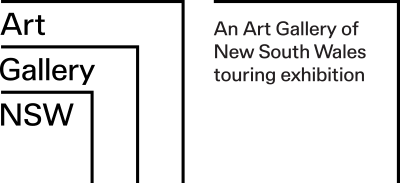Beyond Islandness: Experiments in Writing Relationally

Beyond Islandness: Experiments in Writing Relationally
10:00am - 1:00pm, Wednesday 27 November 2024 | UQ Art Museum
“Relationality compels us to think beyond islandness and invites us towards archipelagic thinking.”
— Shahram Khosravi
How can writing abandon the concept of “islandness” and develop relational approaches to histories of art and visual culture?
Timed to coincide with Hoda Afshar’s exhibition Hoda Afshar: A Curve is a Broken Line at UQ Art Museum (2024), this symposium considers how Pacific voyages, archipelagic thinking, and the material conditions of colonial prison systems inform how we compose histories “beyond islandness” within the nation-state of Australia. Centring new and recent research on carceral and border politics, the symposium asks:
What modes of writing emerge from abolitionist, anarchic, Indigenous, diasporic, and settler historiographies in Australia? What role do art, archives, visual culture and poetics play in restructuring our sense of historiography?
Beyond bringing together writers working across interconnected histories and themes, this symposium is geared toward experimenting with form. Work in progress will be presented for discussion with attendees.
This symposium is convened by Verónica Tello with presentations by Tello, Helen Hughes, Tristen Harwood, Ellie Buttrose, Astrid Lorange and Andrew Brooks.
Workshop
1:00 - 4:00pm, Wednesday 27 November
Tello, Hughes, Harwood, Buttrose, Lorange, and Brooks will lead a small workshop for interested writers and artists following the symposium. They will distribute a short document contextualising each project for attendees to read beforehand and lead a discussion on writing methods of concern to them and those attending. Participation is via a simple Expression of Interest form, which asks what attendees might want to discuss in the workshop related to “Beyond Islandness: Experiments in Writing Relationally.” The workshop will be designed around concerns of interest to all in attendance.
Attendees are asked to read the presenters’ work in progress (totalling approximately 10,000 words) to help them prepare for the workshop. EOIs close Wednesday 30 October.
This is a free event. All attendees must register and show tickets to UQ Art Museum Staff upon entry.
Please inform us of any accessibility requirements through the registration page. Please note that a two week lead time is required to secure Auslan interpretation for this event. Visit our website for our accessibility information.
Hoda Afshar: A Curve is a Broken Line is an Art Gallery of New South Wales touring exhibition. 
Andrew Brooks is a lecturer in Media and Culture in the School of the Arts and Media, UNSW. Astrid Lorange is a senior lecturer in Art, Writing, and Cultural Theory in the School of Art & Design, UNSW. Together, they make texts, installations, public programs, and study spaces as the critical art collective Snack Syndicate. Their collection of essays, Homework, was published in 2021 by Discipline. Their current book project – The Art of Unmaking: Abolition and Aesthetics in Australia – reads contemporary art in relation to police power, settler colonialism, and abolitionist horizons.
Ellie Buttrose is the Curator, ‘Archie Moore: kith and kin’, 2024 Australia Pavilion, Venice Biennale; Curator, 2026 Adelaide Biennial of Australian Art, Art Gallery of South Australia; and Curator, Contemporary Australian Art, Queensland Art Gallery | Gallery of Modern Art.
Tristen Harwood is an Indigenous art writer and lecturer at the Victorian College of the Arts. He is a PhD candidate at RMIT, researching entwined histories of carceralism and art. Tristen contributing editor at MeMo review and a member of Plumwood committee. His most recent book is Variations A More Diverse Picture of Contemporary Art (2023), co-edited and authored with Grace McQuilten and Anthony White.
Helen Hughes is the Deputy Head of the Fine Art Department at Monash University, and a Senior Lecturer in Art History, Theory and Curatorial Practice. Her research into colonial Australian convict art has been supported by a Getty/ACLS Postdoctoral Fellowship in Art History, a Paul Mellon Centre for Studies in British Art Mid-career Fellowship, and a Sir William Dobell Art History Fellowship at the National Australian University. Her book on the topic is under contract with Manchester University Press. Helen is the founding editor of Discipline, and is on the editorial boards of Index Journal and Memo Review.
Verónica Tello is a Chilean-Australian art historian, writer, editor, teacher, and curator. Her current research focuses on transnational art histories — and their archives — in and out of Australia, Chile, the Pacific, and Latin America. Her recent book, Future Souths: Dialogues on Art, Place and History, offers a multi-vocal, global contemporary art history (Third Text Publications and Discipline, 2023). Her writings have appeared in Third Text, Memory Studies, Afterall, Frieze and Artforum. She is Sydney editor of Memo Review and editor-in-chief of the Australian and New Zealand Journal of Art. Tello is Senior Lecturer of Histories of Contemporary Art and Culture at the University of New South Wales, Sydney.
